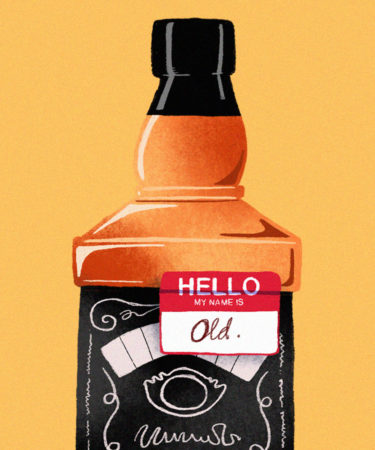The answer here isn’t clear, but it could be based on how bourbon supposedly got its name in the first place. According to one story, the region of Old Bourbon County in Kentucky became famous for its corn whiskey during the 19th century. And as that whiskey became famous, makers would stamp the name Old Bourbon Whiskey on the barrels that left the distilleries in the county for points across the U.S., letting drinkers know this was the whiskey from Old Bourbon County, Ky. As distillers started putting their own names or the names of their brands on bottles and barrels, many kept “Old” in the name, thus resulting in brands like Old Forester or Old Grandad.
But to be fair, this has never been proven, and the way bourbon got its name in the first place is highly disputed. Some historians believe the name in fact originated in New Orleans, which was selling a whole lot of the whiskey being made in Kentucky on the city’s famous Bourbon Street. In this telling, bourbon received its name from people referring to “that delicious whiskey sold on Bourbon Street.”
But back to how the word “old” came to appear on so many bottles. Another theory is that brands started to refer to themselves as “old” in order to make sure consumers knew that the whiskey in the bottle had spent some time in barrel and was therefore aged. This wasn’t moonshine — it was aged, old bourbon whiskey. Historically, a whiskey labeled as “old” was synonymous with quality, a brand rep from one such brand with “old” in its name has told me.
Or, it could be that one brand with “old” in its name started to sell well, and the rest copied them. That’s probably the most likely reason.
